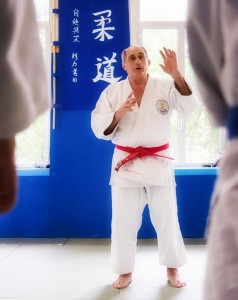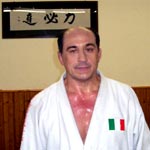 It’s Judo whenever you can draw order from chaos
It’s Judo whenever you can draw order from chaos
That’s the last point of I shin den shin I wrote so that my pupils read it at the end of every training.
One of the elements of Judo didactic is called ‘world’, namely questions and answers between the Master and his pupils. Unfortunately, this aspect is almost never used.
This is the reason why I decided to write I shin den shin ‘from my spirit to your spirit’, namely some thoughts that summarize the most important aspects of Judo Kodokan.
The last thought reminds that Judo is well practiced if it helps drawing order from chaos. Order is gained through Kata and Randori, which interact during every training.
The internal order I refer to must arise from chaos and then grow, and it must be looked for constantly and carefully during the practice. It’s a very difficult battle, to which one should dedicate all his/her energies since chaos is the source of everything.
The whole universe has developed through a succession of order and chaos, just like our planet, nature and every living being have done.
Luckily, human beings can interact with order and chaos more than the other living beings, and therefore they can also better understand what is surrounding them.
Try to feel the chaos in a beginner who believes to be in danger during an exercise, during the randori or during the kata. Feel your internal order and compare it with the beginner’s chaos.
And then feel the difference if you practice with someone who is more experienced than you. That’s the moment when you have to keep looking for your internal order. If you do it constantly, it grows gradually and, consequently, you will become spiritually stronger and more capable to help people in troubles.
This must be looked for, felt and given to the other people. Beginners should feel that the person who is practicing with them is internally different, and not simply better from the physical or technical point of view: they should nourish themselves with the order they perceive in their more experienced training partners.
Alfredo Vismara Hanshi Dai Nippon Butokukai
Traduzione di Andrea Lorenzo Covini

